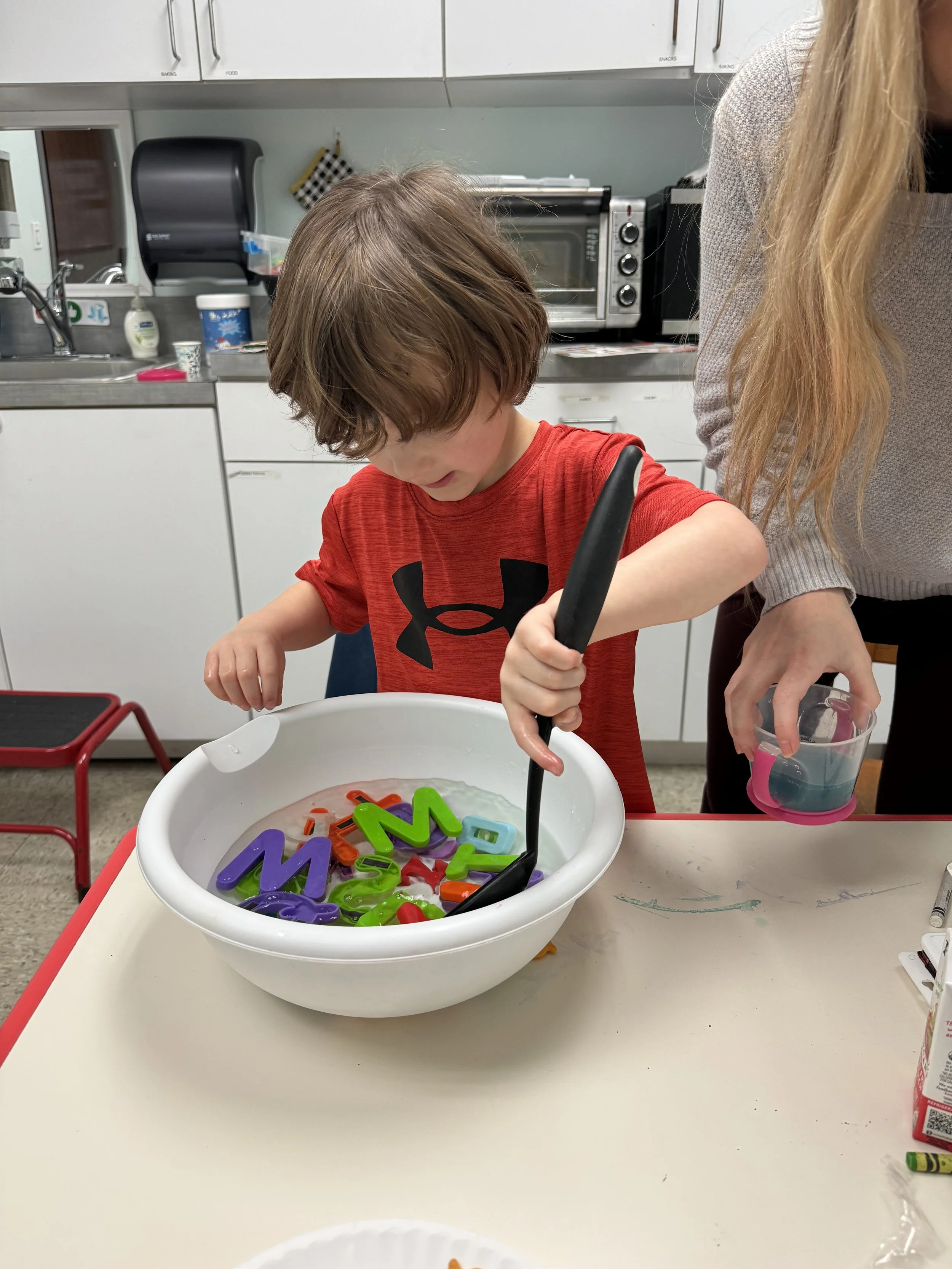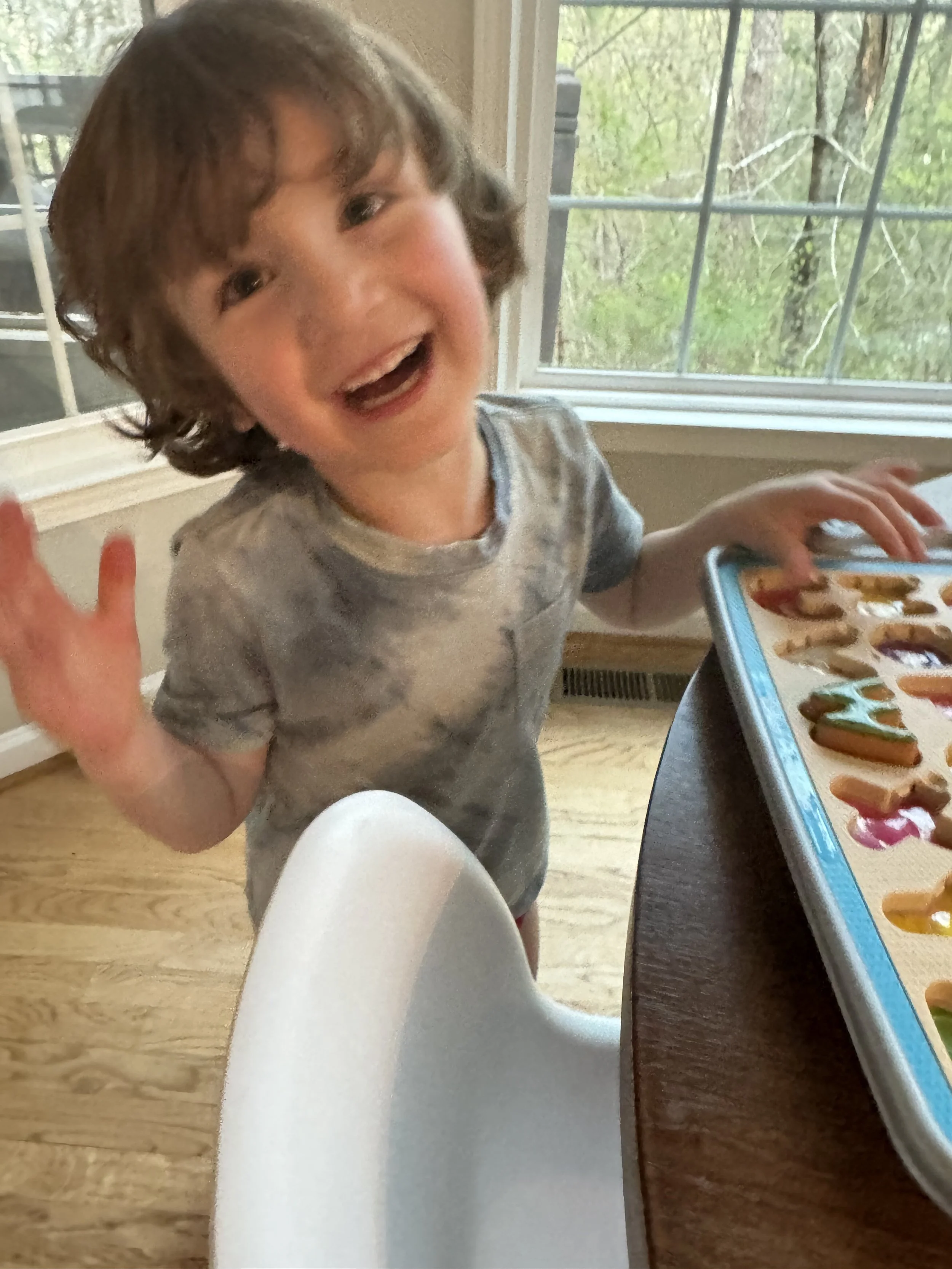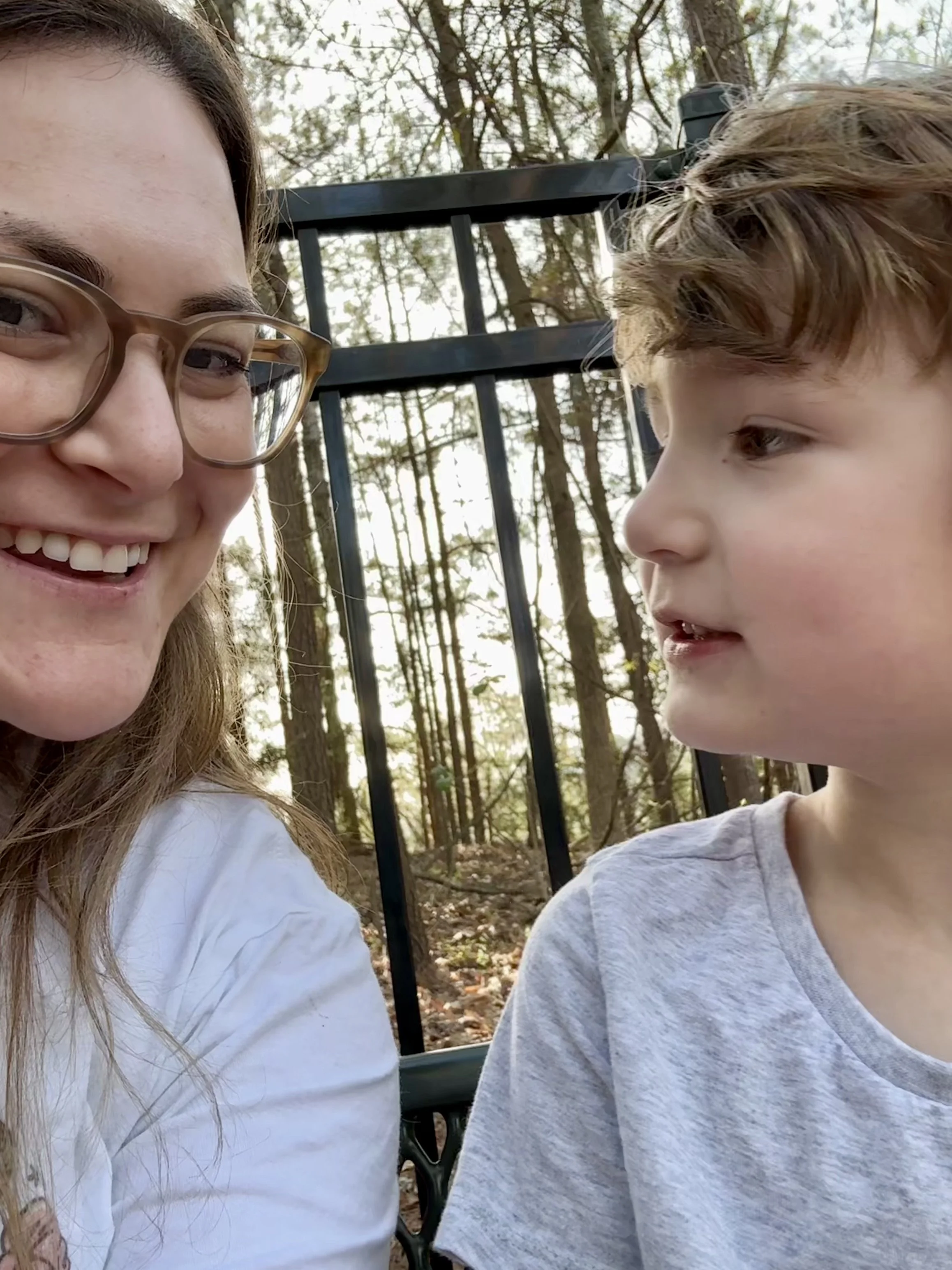What Every Mom Needs To Hear After An Autism Diagnosis
“At least he looks normal,” the woman in the waiting room told me.
She was referring to Jake as she compared her 4-year-old daughter to him.
“They are both normal,” I replied.
“She can’t do anything,” she said next.
A few minutes later, her child’s occupational therapist greeted them, and the little girl ran to hug her.
“She can’t do anything,” the words remained in my mind.
But there she was, showing affection, love, awareness, and joy, all while eating snacks and exploring the room.
“It was nice talking with you,” she said as she stood and walked into the back room.
I looked to my left at Jake, who was playing an alphabet game on my phone and jumping around excitedly.
I looked at Sydney, standing in metallic pink boots, observing everything around her.
Neurodivergent and neurotypical.
Normal.
Both of them.
I couldn’t help but feel sadness for the little girl.
It was not because “she can’t do anything” but because she was being raised in an environment where she was seen as limited.
We often associate the word capable with society’s standards…. A child can make friends, CHECK! A child can read, CHECK! A child can ask for lunch, CHECK!
We don’t pair capable with intangibles… love, awareness, introversion.
That’s one of the biggest lessons I’ve learned as an Autism mom… to ALWAYS presume competence even when I feel doubtful of his ability.
A few months ago, Jarrod and I went through days and days AND days of deliberation about school and therapy for Jake.
To gain some perspective, I sought out guidance from professionals.
“What are your hopes, dreams, and expectations for the future? Knowing this will help you determine where you think he should be right now,” she said.
I realized I didn’t have a clear picture as I thought about it.
Truth is all of us as parents (even those with neurotypical children) don’t know how things will turn out but milestones feel more familiar in a typically developing child.
The worry that I have is not necessarily on Jake’s abilities but more so how his abilities translate and are supported in a neurotypical world.
One question I ask myself when I need a self-check is: If he did not have a diagnosis, would I feel this way? If he had all these characteristics but did NOT have an official diagnosis, would I still question the future?
It feels like that’s what happens when they slap an autism label next to their name.
That the label infers that their trajectory will be different than the typical.
In the beginning, it does start out differently than the typical.
While parents of neurotypical children are touring pretty preschools, going to school picnics, and trying 3-year-old soccer— parents of children with learning differences are sitting in on IEP meetings, checking out therapy centers, and some are learning how to use AAC devices.
Life is so different, but …it’s still normal.
A phrase used within the Maori people, Takiwatanga, translates to “my own time and space.”
Within this indigenous New Zealand culture, Autistic children are seen to have a strong sense of wairua (a strong spirit), meaning they can strongly connect with a higher spiritual realm.
The Maori community believes that Autistic people have a deeper connection with the rhythms of nature and the world and do so within their own way.
I keep trying to put that notion into practice.
That he is who he is and will be who he will be.
He is his own individual who is developing just as HE should be.
I keep stepping into the trust that it will unfold as it should.
As much as I want to speed time up and see what the future holds, I also want to slow time down to stay more in control.
So, where do I see my son in the future?
Well, I see him doing whatever he wants to do.
I constantly have to question myself and ask, “Is this what I want for Jake, or is this what Jake wants?”
It’s challenging when you have 30+ years on someone; you know what the world is like- you’ve gone through your own struggles…you want to help your kids avoid pain if they can.
At least that’s what I’m trying to do… avoid.
I also know the saying that whatever we go through as children influences who we become as adults—the more adversity, the more resilience.
But I’m still scarred by a lot from my childhood wounds.
Although my parents loved me endlessly, my world told me you don’t fit here.
I worry about the day that the light in my son begins to dim.
When will he know he’s different?
How do we navigate this?
Of course, I have moments of doubt about his future.
How could I not?
Society has taught me to fear what is different than me rather than be curious and lean in.
I’ve partnered with Autism for over 2 years now, and I see things differently than I once did.
I see his strengths, gifts, and a future waiting for him that is bright, fulfilling, and destined to be his.
Although I never saw Jake like that mother saw her daughter, I did live in a space of worry and fear about him for a bit of time after his diagnosis.
I saw Autism, then Jake.
Now I see Jake and then Autism.
Don’t get me wrong, I still get caught up in the worry sometimes.
I still get frustrated sometimes.
I still ask myself, “Why?” sometimes.
Every day, things that “should” be simpler are more challenging.
Like potty training.
Or us walking down the street or in the grocery store.
It feels like I’m always behind the eight ball.
Just the other day, we were at the park, and I felt my anxiety beginning to spike.
A playground full of running children scrambling in every which way…the difference is?
My son doesn’t understand the social landscape of the playground yet.
My husband was standing on the side near the bottom of the slide while Jake was waiting behind a younger boy who was hesitant to go down.
Instead of Jake asking him to move, he pushed him.
This is a rare occurrence, but I winced from the other side of the park.
“When will it click?” I thought…followed by, “will it ever?”
How do I teach him when I’m still learning myself.
How do we teach children before we know the answer?
We don’t.
Although we all try to be proactive in our parenting approach, much of it is reactive, based on events that occur.
The markers feel more straightforward to navigate in a typically developing child.
And sometimes I ask myself: is it just easier to navigate because the world is set up for them?
That’s the thing about autism— the pathway to adulthood is different because it’s a different way of developing, and the world is not set up to support neurodiversity.
It’s not inferior or wrong— it’s different, it’s normal.
Yet, a question still hangs with parenting a child on the spectrum.
A wondering of if and when.
Sometimes, I look to moms who share openly about their child’s diagnosis on the internet- whether that’s on Instagram or blogs to see where their children are now at 6, 11, 13, 19, and older. (below I share many accounts that inspire me!)
I even follow many autistic adults and try to picture my little boy at that age.
And what those accounts tell me is that the future is bright—it keeps me hopeful and reminds me to never give up rooting for him.
I have to remind myself - he is developing on HIS time.
It’s easy to compare how Autism shows up for one person and how it does another.
So, if you’re a mom who’s just received an autism diagnosis, here’s what I’d tell you:
Your child is normal.
They aren’t broken. And either are you.
They have a different neurotype.
They are developing in their own space and time.
They are just fine as they are and do not need to change.
It’s us who has to change.
You will expand in more ways that you can ever imagine.
You will learn to love even more fiercely than you already do… and it won’t be just your children you find more acceptance and love with…it will also (and mostly) be with yourself.
Some days will be extra hard… the tears will fall and the skies will be grey.
Other days you’ll have a deep knowing that it was designed to be this way and you were meant for this journey.
Be kind to yourself & take care of yourself.
Lean in to curiosity vs judgment
And remember, if you can grow and change— so can they.
Welcome to the magical world of Autism, mama.
New to the world of Autism or looking learn more?
Check out these neurodiversity affirming people on instagram!
Books:
Forever Boy: A Mother's Memoir of Autism and Finding Joy by Kate Swenson
Sincerely Your Autistic Child by Autistic Women and Non Binary Network
Podcasts:




